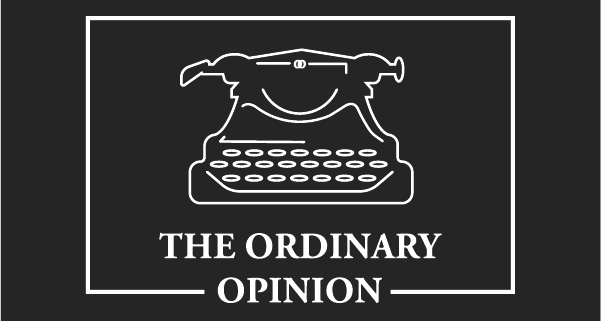For the most part, I like to think I surround myself with rational people. It’s a shame to have to lead with that, but in these times of idiocy from those in high places, and from those who blindly believe or defend them, I thought it best we not take this for granted.
My friends and colleagues are the type of people who pride themselves on fact-based decisions and sound logic. Emotion is typically introduced only as confirmation, an internal rubber stamp after the data has said its piece.
What then, I asked myself, to make of this recent conversation with my friend, Lini:
Lini: “Hey! News! I just got an offer from Prestige Capital! Awesome, right?” (Prestige Capital is not the company’s real name…Lini is not my friend’s name either; fake names to protect the innocent)
Me: “Congratulations! So happy for you! So now you’ve got this and the Apple offer, right?” (Apple is a real company’s name; you know them. Apple needs no protection)
Lini: “I do! Good problem to have, no? What do you think?”
Me: “Well…what do you want to be when you grow up?”
Lini: “haha…funny. Probably something in Product Management.”
Me: “Cool. That’s the Apple position, right? Product Management? And your internship with them was in that group?”
Lini: “Correct. Loved it.”
Me: “Cool. So immediate functional focus, and you can start building a track-record on your resume. What about comp? What is Apple offering?”
Lini: “$xxxK. ~35% bonus. Some equity-based comp.”
Me: “Nice. And Prestige?”
Lini: “Same base, no equity comp, and the bonus doesn’t have set targets.”
Me: “…so it’s comparable comp in the short term at least. Sounds like the Apple gig gives you immediately functional exposure. And some long-term incentives. And the Cali lifestyle. Plus the Apple name on your resume will open a few doors going forward. Of that list, I’d say Prestige only has the name-brand thing. They’re a pretty big deal. That said, I’ve got a friend that works at Prestige. Hours are brutal. It’s 80% travel, which is rough. And client service can be a lot.”
Lini: “Yeah…I’ve heard the same…”
Me: “So…answer is obvious, right? Apple thing sounds like your dream job.”
*silence*
Lini: “Yeah…I don’t know…”
Me: “Wait. Crappy lifestyle and random content vs. decent lifestyle and content focus and better comp.”
Friend: “Yeah, I know…it’s just…who says no to Prestige?!”
Me: “Mostly people with offers for better jobs. Like you.”
Friend: “I don’t know, man. It’s Prestige. Lots of people get into Apple. Not everyone gets into Prestige. Even just *telling* people I got this offer feels different from when I told people about the Apple offer. The career services office clapped and cheered when I walked in with the news.”
Me: “What’s that got to do with anything beyond that moment?”
Friend: “Sure…but it’s Prestige. It’d feel silly turning them down.”
Me: “You keep saying that…but I’m not sure that’s the right call on this one…”
*awkward laughter*
That conversation went on while. The pauses got longer and I got more aggressive and her answers got more repetitive. Two weeks later she’d signed with Prestige Capital. We celebrated. I couldn’t figure out why.
—
After grad school, a lot of my classmates became investment bankers. Many of them had discussed banking with me, and all complained in advanced about the 18 hour work-days, the complete lack of work-life balance, the impact to their personal relationships, and – for some – the drag on spiritual health.
But when recruiting season came, they all piled into buses and planes and made pilgrimage to New York to court the banks, large and small. They returned with awful stories of ridiculous wait times, being compared with each other, their names being forgotten, and second year bankers monologuing about how lucky they were to be considered. It all sounded a bit like…hazing.
The question “so then why are you doing this?” was often met with something about compensation and exit opportunities. But the same could be said for any one of a half dozen companies that recruited at my school…from Facebook and Google to Caesars Entertainment. Instead, it was as though we wore the negatives of the banks as a badge of honor; like everything that should have chase us away from Wall Street instead made it more attractive.
How in the world do they do that? How do banks, consulting firms, and some law firms continue to reel in class after class of promising young talent, despite historically high attrition rates and horror stories a google search away?
Clearly, a large part of it is the prestige: the way our self-esteem is edged up whenever we share that we work at Goldman or Carlyle or Wachtell Lipton. But how did that ever become – and how has it remained – enough?
I don’t have an answer for it, and I realize that I am questioning the power brand equity – the unstoppable force that has people spend $4,500 on a Chanel purse when a $50 Target one will do – but isn’t it odd that the same set of feelings that allow us to justify spending half a paycheck on a pair of designer shoes is the same we use to make life-shaping decisions?
I hear from my friends at firms like Prestige all the time. They are barely happy. The time my friend will spend chained to her desk at Prestige is time she won’t be reading, writing, working out, making friends in her new city, etc.
She’ll travel 4 days a week, catching 7:30am flights on Mondays, and getting home at 10:30pm on Thursdays. Her schedule will be dictated by the Directors at her Firm, and she’ll spend 60% of every week away from her fiance.
Compare this with her best friend, who works a “regular” job. She’s earning about 25% less, but seems to carry considerably less stress in life. She works about 10 hours a day and doesn’t log in once she’s home, knows every semi-decent happy hour in DC, and plays in a neighborhood soccer team. Again, there is less money, and I get that. But she’s in her chosen field, and feels the money will come over time.
Last time we hung out, though, all she could talk about was how lucky Lini was and how she was feeling “left behind.” How?! How can the scales be tipped so heavily simply by the name of a place? How doesn’t that run completely against our self-regulating pursuit of all-around happiness?
–
I’m writing this exact sentence at 12:51am ET on a Thursday night/Friday morning. On a plane. I’m on my way home from my client’s site, and I’m exhausted.
I work for one of Prestige’s direct competitors, and the lines above are ones I give feed myself, and then reject, almost weekly. I’ve worked ~16 hours per weekday for about 5 years now, and crash on the weekends. That long break between my previous post and this one? Things got hectic at work. No time for hobbies. And now, I find myself breaking.
It started subtly: my mind would begin to race for no reason at all, and I couldn’t keep single thoughts in my head for sustained periods of time. Then last year I began waking up in the middle of the night, sometimes sweating, once just about crying. Small questions, anything taking up thinking time when I’m trying to rest, irritate me. My diet is a disaster.
I’m not breaking because I’ve taken on new responsibilities, or made a dramatic step-up at my firm. No, the camel-breaking straw is basic: I’m trying to buy furniture for my house and maintain additional friendships outside the office. Both should be fun. But they’re heavy instead. Because I’m working. And trying to make it to Partner. At a prestigious company. I don’t have the time.
I started writing this weeks ago, intending to share my thoughts on why we make odd decisions for the sake of “prestige,” and what that prestige does for us. Now, as I attempt closing paragraphs, I keep re-reading the first few, and I feel foolish. Not because it’s not the best writing, but because I lost the same argument with myself 5 years ago, and still haven’t come around, despite knowing better. I am the answer to my own questions, and I can’t quite seem to help it.
And I’m supposed to be one of the rational ones.



